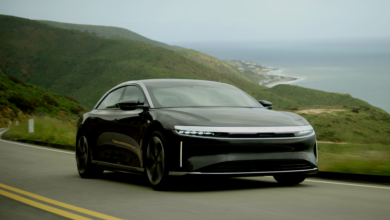Used vs New Cars What’s the Better Buy in the Current UK Market?
Used vs New Cars in the UK and Compare to the costs depreciation benefits of the decide what was the better buy in today's market.

The decision between purchasing a Used vs New Cars in today’s UK market requires careful consideration of multiple factors, from financial implications to personal preferences. With economic uncertainty, fluctuating fuel prices, and evolving automotive technology, buyers face a complex choice. New cars offer cutting-edge features, full warranties, and the latest safety systems, but come with rapid depreciation. Used vs New Cars provide significant upfront savings and slower value loss,but may involve higher maintenance costs. This comprehensive guide examines all key aspects to help you determine whether a used or new car better suits your needs in the current UK automotive landscape.
Recent market trends have further complicated this decision. The pandemic-induced semiconductor shortage disrupted new car production, causing extended wait times and pushing many buyers toward used vehicles. Simultaneously, rising inflation and interest rates have made financing more expensive regardless of purchase type. Meanwhile, the UK’s accelerating shift toward electric vehicles adds another layer of consideration, with government incentives favoring new EV purchases but used models offering better value. Understanding these dynamics is crucial for making an informed choice that aligns with both your budget and lifestyle requirements.
Used vs New Cars What’s the Better Buy in the Current UK Market?
Upfront Purchase Price & Depreciation
New cars demand a premium price due to their untouched condition, latest technology, and full manufacturer warranties. However, they suffer immediate depreciation, losing 20-30% of their value in the first year and up to 50% within three years. In contrast, used cars especially those 2-4 years old have already undergone the steepest depreciation, allowing buyers to acquire nearly the same features and reliability at 40-50% lower cost.
Financing & Loan Terms
New car buyers often benefit from low-interest manufacturer financing, cashback offers, or lease deals, reducing monthly payments. Used cars, however, typically come with higher interest rates from banks or dealerships. Yet, because used vehicles have a lower principal amount, the total loan cost may still be cheaper than financing a new car. Buyers should compare APR rates, loan terms, and total repayment amounts before deciding.
Total Cost of Ownership (TCO)
While new cars have lower maintenance costs (thanks to warranties and free servicing), their rapid depreciation makes them more expensive in the long run. Used cars, though potentially requiring more repairs over time, save buyers thousands upfront and depreciate much slower. To make the best decision, calculate insurance, fuel, maintenance, and resale value over 3-5 years not just the sticker price.
The Hidden Cost of New Car Ownership
Severe First-Year Value Loss
New cars experience their steepest depreciation within the first year, losing 20-30% of their value immediately. Luxury models and certain mainstream brands can shed £10,000+ in just 12 months. This makes new cars a poor investment if resold quickly, as owners absorb the biggest financial hit.
The 3-Year Sweet Spot for Used Cars
After three years, depreciation slows significantly vehicles retain 50-60% of their original value while still offering modern features and often remaining warranty coverage. Buyers who target Used vs New Cars avoid the worst depreciation while getting Used vs New Cars reliability at half the original price.
EV Depreciation
Early electric vehicles suffered rapid value drops due to Used vs New Cars and advancing tech. However, improved battery warranties (8+ years) and maturing EV markets have stabilized depreciation. Used EVs now offer better value retention, along with perks like congestion charge exemptions making them smarter buys than before.
Running Costs Maintenance, Repairs and Reliability
New Cars Lower Costs with Warranty Protection
New vehicles come with comprehensive manufacturer warranties (typically 3-7 years), covering most major repairs. Many brands also offer complimentary servicing for the first few years, reducing maintenance expenses. This makes ownership predictable and Used vs New Cars with minimal unexpected costs during the warranty period.
Aging Vehicles
Once a car exits its warranty period, maintenance becomes more expensive. Wear-and-tear items (brakes, tires, suspension) need replacement, and Used vs New Cars (transmissions, turbochargers) may fail especially in European luxury models. Extended warranties or prepaid service plans can help mitigate these costs for used car buyers.
Certified Pre-Owned (CPO)
CPO programs provide manufacturer-backed inspections, extended warranties, and roadside assistance, offering near-new reliability at used car prices. These vehicles undergo rigorous checks and often include Used vs New Cars making them a smart middle ground for buyers who want savings without sacrificing peace of mind.
Technology and Safety Advancements
Automotive technology evolves at a breakneck pace, with each model year bringing significant improvements. New cars offer the latest infotainment systems, Used vs New Cars assistance features, and cutting-edge safety technologies. For tech-savvy buyers or families prioritizing safety, these advancements can justify the premium for a new vehicle.
Safety deserves particular emphasis. Modern crash protection systems and accident avoidance technologies have made remarkable strides. Features like automatic emergency braking, blind spot monitoring, and lane keep assist – once luxury options – are now common even in mainstream new cars. These systems can literally be life-saving, particularly for less experienced drivers.
Market Dynamics and Availability
New Car Advantages with Warranty Protection & Predictable Costs
Come with comprehensive 3-7 year manufacturer warranties covering major components. Often include 1-3 years of complimentary scheduled maintenance. Enable accurate budgeting with Used vs New Cars unexpected repair costs during warranty period. Particularly beneficial for those who prefer hassle-free ownership.
Used Vehicle Considerations
Out-of-warranty repairs become owner’s responsibility (typically after 5+ years). European luxury brands often have significantly higher repair costs than mainstream models. Critical to review service history and consider extended warranty options. Used vs New Cars becomes crucial to prevent costly breakdowns.
CPO Benefits and Balanced Value Proposition
Undergo 100+ point manufacturer inspections before certification. Typically include 1-2 year extended warranty coverage. Often come with additional perks like roadside assistance. Provide used car pricing with nearly-new car peace of mindIdeal for buyers seeking reliability without new car depreciation.
Personal Factors
Beyond spreadsheets and specifications, car buying involves emotional elements. The pride and pleasure of owning a brand-new vehicle carries real value for many buyers. That new car smell, untouched interior, and knowledge you’re the first owner provide intangible benefits that Used vs New Cars premium pricing for those who value them.
Read More: Top 5 Skills You Need to Stay Competitive in the Job Market
Conclusion
The decision between a used or new car ultimately depends on your personal priorities, financial situation, and how you value different aspects of ownership. New cars offer unbeatable peace of mind through comprehensive warranties, cutting-edge technology, and that irreplaceable new vehicle experience. However, these benefits come at significant cost, particularly in the form of rapid depreciation that can erase thousands of pounds in value during early ownership.
For most buyers in today’s UK market, a carefully Used vs New Cars represents the smarter financial decision. Vehicles aged 2-4 years offer an optimal balance of value retention, modern features, and remaining warranty coverage. Certified Pre-Owned programs further reduce risk while maintaining significant savings versus new. Whatever your choice, thorough research and realistic assessment of your needs will lead to the most satisfying ownership experience in these uncertain Used vs New Cars.
FAQs
How much cheaper is a used car compared to new?
A 3-year-old used car typically costs 40-50% less than its original price, having already absorbed the steepest depreciation.
Do new cars really have lower maintenance costs?
Yes, thanks to included warranties and free servicing packages, new cars have minimal repair costs for the first 3-5 years.
Are used electric vehicles a good buy?
Used EVs can offer great value, with battery warranties transferring to new owners and slower depreciation than new models.
How has the car shortage affected prices?
Recent shortages inflated used car prices by 20-30%, though the market is now stabilizing with improved new car availability.
What’s the best age to buy a used car?
2-4 year old vehicles typically offer the best balance of value, features, and remaining warranty coverage.








2 Comments